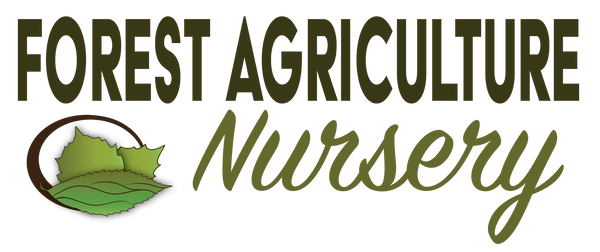About Forest Agriculture Nursery
"Redesigning Agriculture in Nature's Image"
Origins
Established on New Forest Farm in the early 1990s, Forest Agriculture Nursery began as a Wisconsin nursery interested in breeding productive and extreme climate-robust hybrid chestnuts and hybrid hazelnuts in anticipation for the commercial potential of these valuable nutrient-dense crops to work as part of integrated restorative food systems. At the time, exploration of cold hardy hazelnut and chestnut varieties adapted for cold climates was in it's infancy. After decades of variety trials with thousands of trees, Forest Agriculture Nursery developed into an edible woody crops nursery that offered bare root seedlings from the healthiest and top yielding survivors on the property.
Forest Agriculture Nursery Today
Although we specialize in hybrid hazelnuts and hybrid chestnuts seedlings, we offer a number of our favorites woody polyculture companions like Korean Nut Pine, Walnuts, Apples, Serviceberry, and Sea Buckthorn. Please browse the shop for a complete list of products.
All of our seedlings come to you in the springtime as dormant bare root stock in order for us to offer quality bulk quantities at an affordable price. Unless otherwise noted, seedlings come in bundles of 25 and are priced per bundle.
All the plant varieties that we offer tolerate climate extremes, including temperature spikes (100+), dips (-40), drought and flood.
Forest Agriculture Nursery and Restoration Agriculture
The demand for perennial tree crop seedlings is greater than ever. Industrialized agriculture as we know it is not sustainable and people are looking for solutions. We see the potential for more farms and homesteads to pair economic stability had from crop diversification with ecological restoration. Our nursery supplies value-adding vegetation that from our experience CAN help restore the environment and create a variety of income streams. We will continue to experiment with woody perennial polycultures as the alternatives to annual monocrop agriculture and we encourage you to participate.
Please, extend our vision of building resilient ecosystems with ag-scale production potential to your landscapes and continue the research of propagating perennial food-bearing plants that work well for your region!
